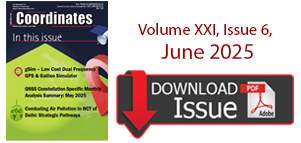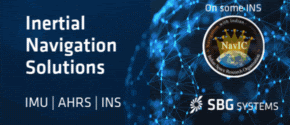
Fundamental to the challenges facing the reform of the Indonesian land sector is that it lacks a comprehensive land law. All land in Indonesia falls into one of two categories: (i) forest estate (kawasan hutan); and (ii) non-forest estate (Areal Pengunan Lain, APL). As such, land is administered under a dual system through two different government agencies, the Ministry of Forestry (MoFor) and the National Land Agency (Badan Pertanahan Nasional, BPN) responsible for forestry and non-forestry lands, respectively.

The methodologies of land surveying remained largely unchanged over hundreds, if not thousands, of years. Computational methods were enhanced with the use of logarithmic tables introduced by Napier in the 17th century, and supplemented by hand-powered rotational cylinder mechanisms for speed of calculation first introduced by Pascal, also in the 17th century. These were later to be electrified in the 20th century prior to the invention of the…

Various nations have passed legislation that makes it possible for ruralcommunities to register their lands as a single legalentity and act as decentralized land administration and management bodies. However, due to various political, financialand capacity constraints, these laws are often not implemented successfully.

The importance of good land governance to strengthen women’s land rights, facilitate land-related investment, transfer land to better uses, use it as collateral, and allow effective decentralization through collection of property taxes has long been recognized. The challenges posed by recent global developments, especially urbanization, increased and more volatile food prices, and climate change have raised the profile of land and the need for countries to have appropriate land policies.

The concepts proffered in paper generally are in relation to developed jurisdictions that have fully embraced the Information Age and its significant investments in digital data management. Since 2001, and as a means of improving the administration of marine and coastal spaces through decision support, interested members of the international geomatics community have increased research efforts towards the development of marine cadastres in various jurisdictions. Among them are researchers from Canada, Australia and the United States of America (USA) (Collier, Leahy and Williamson, 2001; Ng’ang’a, Sutherland and Nichols, 2002; Sutherland, Wilkins, and Nichols, 2002; Barry, Elema and van der Molen, 2003; Binns et al., 2003; Ng’ang’a et al., 2004; Sutherland, 2004; Sutherland and Nichols, 2004; FGDC, 2008). The main focus of this paper is Canada but developments from the U.S. and Australia are briefly discussed.

The World Bank, with the support of development partners and civil society organizations (CSO), are continuing to support the implementation of land administration and management projects throughout the world. From the World Bank side, specific support to the land sector has been provided for the past three decades. These projects have varying degrees of emphasis on social equity and economic development. In post-conflict countries, tenure security and access to land are major factors in providing long-term stability.

What is the mandate of National Coordination Office for Space-Based PNT?: The mandate for the National Coordination Office (NCO) is detailed in United States (U.S.) National Policy. Our primary role is to support the National Space-Based PNT Executive Committee which convenes at the Deputy Secretary level to advise and coordinate on Space-Based PNT issues affecting multiple departments and agencies. The NCO does not make decisions or create policy. Rather, we serve as the Executive Committee’s Secretariat and execute tasks as directed by them. Specific responsibilities include interagency coordination, consensus development and issue resolution for all matters presented to the Executive Committee. As Director, I represent the Executive Committee on space-based PNT matters within the Government, the public sector, and with representatives of foreign governments and international organizations.

Ownership and long term leasehold are the most important rights in land. The actual content of these rights may vary between countries and jurisdictions, but in general the content is well understood. Rights to land also include the rights of use. This right may be limited through public land use regulations and restrictions, sectoral land use provisions, and also various kind of private land use regulations such as easements, covenants, etc…

ll countries have to deal with the management of land. They have to deal with the four functions of land tenure, land value, land use, and land development in some way or another.
National capacity may be advanced and combine the activities in one conceptual framework supported by sophisticated ICT models. More likely, capacity will involve very fragmented and basically analogue approaches…










 (5.00 out of 5)
(5.00 out of 5)